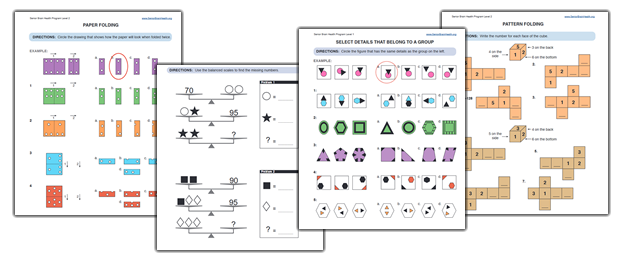As we age, our cognitive abilities naturally undergo changes, impacting various aspects of our critical thinking skills. In this article, we'll explore how aging affects different components of critical thinking processes and discuss strategies for maintaining cognitive health as we grow older.
Memory Decline: A Key Aspect of Aging
One of the most noticeable changes in cognitive function associated with aging is memory decline. As we grow older, it's common to experience difficulties in recalling information, particularly episodic memory—the ability to remember specific events and experiences. This decline in memory can impact critical thinking skills by making it harder to retrieve relevant information and apply it to problem-solving tasks.
Attention and Processing Speed: Challenges in Focus and Efficiency
Aging also affects attention and processing speed, making it harder to maintain focus and process information quickly. Older adults may find it more challenging to filter out distractions and concentrate on tasks for extended periods. This decline in attention and processing speed can impede critical thinking skills by slowing down cognitive processes and reducing the efficiency of problem-solving.
Executive Function: Decline in Cognitive Flexibility and Planning
Executive function, which includes abilities such as cognitive flexibility, planning, and decision-making, also undergoes changes with aging. Older adults may experience difficulties in switching between tasks, adapting to new situations, and planning and organizing complex activities. This decline in executive function can impact critical thinking skills by limiting the ability to approach problems from multiple perspectives and devise effective strategies for problem-solving.
Problem-Solving: Navigating New Challenges in the Aging Brain
Overall, aging can pose challenges to various components of critical thinking processes, including memory, attention, processing speed, and executive function. These changes can impact problem-solving abilities and decision-making skills, making it harder to navigate new challenges and adapt to changing circumstances.
Maintaining Cognitive Health: Strategies for Aging Gracefully
While aging inevitably brings changes to cognitive function, there are strategies we can employ to maintain cognitive health and support critical thinking skills as we grow older. Engaging in mentally stimulating activities, such as puzzles, reading, and lifelong learning, can help keep the mind sharp and agile. Additionally, maintaining a healthy lifestyle, including regular exercise, a balanced diet, and social engagement, can support overall brain function and promote cognitive resilience in the face of aging.
Conclusion: Navigating the Challenges of Aging with Resilience
In conclusion, aging impacts various aspects of critical thinking processes, including memory, attention, processing speed, and executive function. While these changes can pose challenges to problem-solving and decision-making skills, there are strategies we can employ to maintain cognitive health and support critical thinking abilities as we age. By staying mentally and physically active and embracing lifelong learning, we can navigate the challenges of aging with resilience and grace.
Ready to take proactive steps towards maintaining your cognitive health? Explore our selection of brain maintenance exercises and critical thinking activities at SeniorBrainHealth.org. Start your journey towards a sharper, more vibrant mind today.




